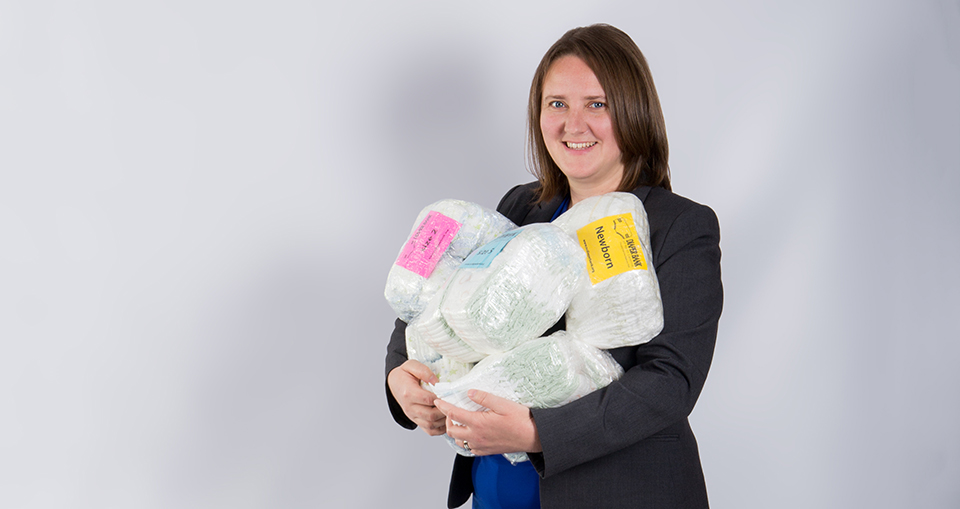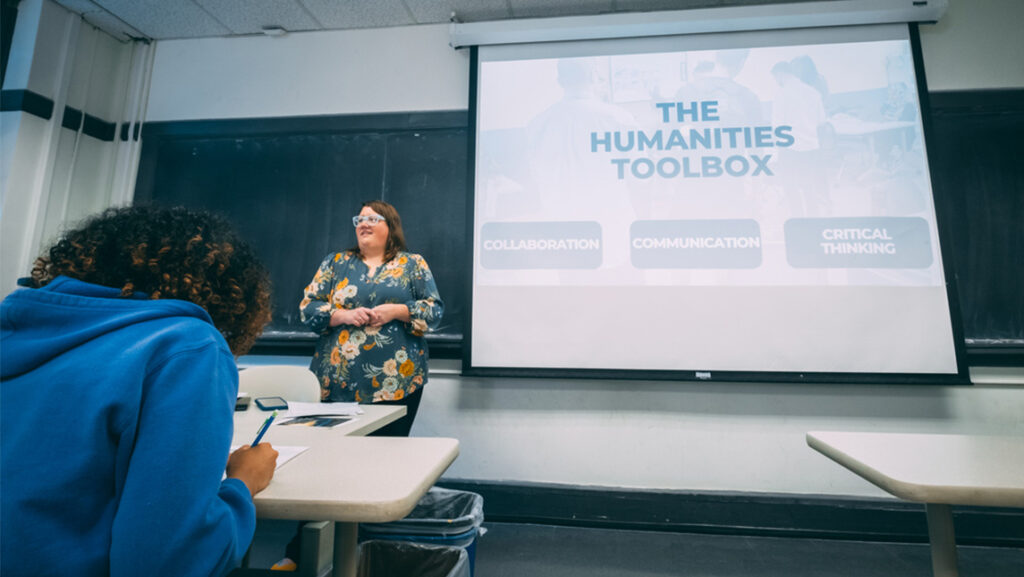From the spring 2017 UNCG Research Magazine
Kelley Massengale was having a cup of coffee in downtown Durham when she noticed a donation box for the Diaper Bank of North Carolina. She had never heard of the organization. Nor had many others, judging by a handwritten sign on the wall. It urged people not to drop dirty diapers in the box.
Almost four years later, as Massengale prepares to graduate with a doctorate in public health education, the Diaper Bank is distributing over two million diapers a year across North Carolina. It has grown from a fledgling nonprofit into an organization with aspirations of meeting basic needs of low-income families in all 100 counties in the state.
Massengale has used research and grant writing skills she gained at UNCG to help the Diaper Bank raise more than $150,000 in funding since 2014.
She’s passionate as she describes a mother forced to choose between food for herself and diapers for her children.
The doctoral student came to UNCG because of its emphasis on community engagement. “I wanted to be out in the community, working with people and doing applied, practical research,” she says.
Her dissertation uses Durham County as a case study for understanding diaper needs in under-resourced communities. Her recently published article on the topic, she notes, is the first research on diaper banks in a peer-reviewed journal. Other diaper banks across the U.S. can now cite the research in funding requests. She has a second manuscript under review.
Massengale’s initial interest in the Diaper Bank was academic. She was teaching a course about health problems experienced by people with low incomes, and she wanted to learn more to share with her students. But she kept coming back, spending hundreds of hours with other volunteers in the Durham branch, where diapers are stacked on metal racks from floor to ceiling. They’re distributed to community organizations such as Early Head Start and Urban Ministries and ultimately given to families in need.
“I can’t imagine doing this without her,” says Michelle Old, the Diaper Bank’s founder and executive director who also oversees branches in Wilmington and Winston-Salem.
Around the time the Diaper Bank was denied a grant partly because it wasn’t able to substantiate a need for diapers among target populations, Massengale approached Old about doing a research study.
She conducted surveys with community organizations and recipient families and compiled data for the bank.
“She took something I knew we had to do and made it a reality,” Old says.
Massengale’s technical expertise and Old’s community contacts have proven to be a dynamic fundraising duo.
New grants have supported the opening of another bank branch and brought toilet-training classes to Durham families. They now also distribute cloth diapers, adult incontinence supplies, and menstrual hygiene products for females, including girls in Durham County schools.
A lack of diapers reaches beyond health concerns, says Massengale, now the bank’s volunteer director of research and evaluation. For instance, it prevents children from attending daycares that require families to supply diapers. That can prevent parents from working or going to school.
“It’s not really about diapers,” she says.
A chalkboard in the Durham center spells out the Diaper Bank’s mission — and Massengale’s calling. It reads “Changing lives one diaper at a time.”
Learn more at https://grs.uncg.edu & https://phe.uncg.edu & http://ncdiaperbank.org



